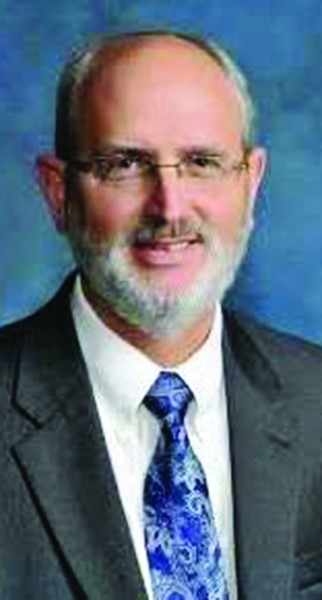Shavuot, the Torah and the sound of silence
“On the first day of the second month, in the second year following the exodus from the Land of Mitzrayim, the Lord spoke to Moshe in the wilderness of Sinai, in the Tent of Meeting, saying…” (Numbers 1:1)
We begin reading the fourth book of the Torah, called Numbers in English and Bamidbar in Hebrew, which translates to “in the wilderness.”
Outside of Israel, this book is always read on the Sabbath before Shavuot, the festival of the giving of the Torah. The rabbis noted that the Torah was given in the wilderness so that no nation could claim ownership; the Torah is open to everybody.
Seven weeks from the exodus from Mitzrayim, B’nai Yisrael traveled to the foot of Har Sinai. There they received the Ten Statements or, as tradition teaches, the entire Torah.
Shavuot is called Z’man Matan Torateinu, the “time of the giving of the Torah.” Soon, we will explore exactly what we received at Har Sinai.
Shavuot is not known for its obvious observances, as are other festivals; we dwell in booths on Sukkot and we eat matzah on Pesach. What is interesting is that Shavuot has developed its own observances, such as eating dairy. This is because we had not yet received the Laws of Kashrut pertaining to the proper eating of animals.
Today, on Shavuot, our meals consist of a blintz casserole, about 268 calories a serving, and cheesecake, about 400 calories. Thank God Shavuot comes once a year, but since it lasts one day in Israel and two here, no wonder the typical Israeli weighs less than we do!
On Shavuot, we read the Megillat Rut, or the Book of Ruth. It is the beautiful story of a Moabite woman who chose to live her life as do the Jewish people. “Your people will be my people; your God will be my God.”
There are other traditions that tie this festival to the learning of Torah. Many Jews will stay up all night studying on the first night of Shavuot. Many synagogues hold all-night study sessions called Tikkun Leil Shavuot. This is based on a midrash that when B’nai Yisrael was ready to receive the Torah, they overslept, and Moshe had to go from tent to tent to wake them up. Most Reform congregations hold Confirmation services on Shavuot, honoring the teens who have continued their Jewish learning beyond B’nai Mitzvah.
The giving of the Torah is the central defining event in Jewish life, but really, what did we actually receive at Har Sinai? The traditional opinion is that Moshe received two Torahs, the written Torah and the oral Torah. In fact, one rabbinic teaching even says that everything any student of Torah will say to his teacher in any generation was already given to Moshe at Har Sinai. This was not to be taken literally; what they meant is that all Torah teachings in every generation were contained in the Torah given to Moshe.
Personally, I like that, but I also like other answers to “What did God give B’nai Yisrael at Har Sinai?” Some say God gave only the first two of the Ten Statements there. These are the only two written in the first person: “I am the Lord your God” and “You shall have no other Gods before Me.”
By the third Statement, it is Moshe, not God, who is speaking when he says, “Do not take the Lord’s name in vain.” This, we are taught, is because the people were much too frightened to understand God’s voice directly, so God asked Moshe to do the speaking.
Some say that God only gave the first word of the first Statement, “Anochi – I.” After one word from God, the people were so frightened, God asked Moshe to finish the Ten Statements.
The Hasidim take this notion even further: God only spoke the first letter of the first word. They teach that it was not God who told Moshe to continue, it was B’nai Yisrael, who, in their fright, asked Moshe to continue.
The first letter of the first word is an aleph, a silent letter. B’nai Yisrael standing at Har Sinai could hear God’s voice in silence. In other words, “The Sound of Silence” was heard, even though it was thousands of years before those two Jewish boys, Simon and Garfunkel, sang their great song of the same name.
What happened on Shavuot? B’nai Yisrael gathered at Har Sinai and heard the true sound of silence. They had an overwhelming sense of God’s presence, but Moshe would speak the words of God.
At Har Sinai, B’nai Yisrael knew that there are God-given commitments that make us Jews. If Pasach is about freedom, Shavuot is about commitment. Without commitment, there can be no true freedom. Oh, and of course, cheesecake.
So, let us break out the cheese blintzes and the cheesecake, read Megillat Rut, study a bissel (little) Torah. Let us all make a commitment to celebrate one of the most important festivals in the Jewish cycle of festivals. And don’t worry, you’ll shed the calories the days after.
Shalom to all and Moadim l’Simcha, may you have a joyous festival.
RABBI RICHARD PERLMAN is the senior rabbi at Temple Ner Tamid, in Peabody, Massachusetts, and a chaplain in the Peabody Police Department and the Massachusetts State Police.








